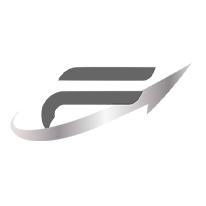GUIDE TO FILLING OUT THE PRO FORMA AND/OR COMMERCIAL INVOICE
Shipments of goods and materials that cannot be classified as “documents” (e.g., spare parts, textile materials, catalogs, samples, ect.) are subject to customs regulations that provide:
Pro forma invoice: in the case of shipments of goods not intended for sale or samples on view with no commercial value (zero value on the invoice is not allowed). It is important that the words VALUE ONLY FOR THE CUSTOMS, NO COMMERCIAL VALUE appear in the body of the invoice.
Commercial invoice: in the case of shipments of goods intended for sale. In order to avoid customs delays, it is necessary, in addition to the accuracy of the data regarding delivery address and telephone contact details of the consignee, the following information be strictly adhered to:
– Invoice in English language or otherwise report the translation.
– Indication of the country of manufacture/origin of the goods
– Precise description of the contents, generic descriptions (e.g. spare parts, gift, sample) are not considered acceptable.
– TARIC code or HS code (customs code) as well as EIN code (consignee’s tax ID) must always be indicated on the invoice.
The commercial or pro-forma invoice must be provided in 6 copies, plus 2 dual use copies, all made original with stamp and signature.
We also remind you that for the shipment to be forwarded,suitable packaging is required.
U.S.A. SHIPMENTS WITH AIR CARGO SERVICE
Airlines have announced that the United States Transportation Security Administration (“TSA”) has issued a security directive for cargo shipments destined for or in transit to the United States of America, restricting the transportation of cargo traceable to Egypt, Somalia, Syria or Yemen.
According to this new directive, airlines/carriers flying to/from the United States of America require a declaration in which shippers must certify that having examined the documents accompanying the goods provided to them by the principals-clients, the origin of the said goods is not Egypt, Somalia, Syria or Yemen, nor has said goods been transferred or transited from the said countries.
That said, in order to comply with this new TSA security directive as well as to provide airlines with the information they need to execute the transportation of your cargo, we are to ask you for a similar statement designed to establish that your cargo “has not originated in, transferred from or transited through any point in Yemen, Syria, Somalia or Egypt.”
These are two types of declarations that must be completed and signed alternately for each individual shipment (Single Shipment Declaration) that falls within the cases of this directive or completed only once (Permanent Shipment Declaration) in case this shipper’s declaration is to be considered for all purposes as a permanent declaration for all your shipments to the United States.
TARIFEE FOR EXPORT
Rates are calculated on the “Total Weight of the Shipment” that is, the sum of the packages that make up the shipment traveling in a single Waybill. If the volumetric weight exceeds the actual weight, the shipping rate will be calculated:
- Volumetric Weight in kg = Length x Height x Width in cm / 5000
- Calculate the “Total Shipping Weight” by summing the weight of all packages to be sent to the same consignee, with a single Flight 2000 S.r.l. Waybill.
- Round weights between 0 and 70.5 kg to the next pound and weights over 71 kg to the next pound.
- Example: 2.1 kg = 2.5 kg; 86.2 kg = 87 kg
- Rates do not include taxes. Where applicable, VAT is calculated on a standard basis.
- To cope with fluctuating costs/taxes, Flight 2000 S.r.l reserves the right to change fees and surcharges. Any changes will be communicated with 30 days’ notice.
SHIPPING SURCHARGES IN ADDITION TO TRANSPORTATION COSTS
- Change of delivery address.
- Outsized.
- Special handling (oversized packaging, cylindrical shaped items, bins, metal or wooden containers, or goods not enclosed in corrugated cardboard, ect.ect.)
- Paper processing of the waybill.
- Non-overlapping merchandise.
- Additional handling ( applies to any parcel with an effective weight greater than 32 kg. ).
- COD Shipment: Flight 2000 S.r.l accepts COD shipments within the National, EU, Switzerland and Norway.
- Saturday delivery service: shipping surcharge, Day Express service.
- For all undeliverable shipments, receiving charges apply.
- POD: proof of delivery with recipient’s signature.
- Additional insurance coverage.
- Incorrect/missing consignee code for freight collect shipments: surcharge applied to all shipments where no customer code number is indicated, or where the number indicated is incorrect.
- Fuel surcharge.
- Residential surcharge ( a residential delivery is one made to a private home, including a business conducted at a dwelling or apartment on the floor ).
- Cost of forwarding duties and VAT ( for shipments outside the EU, when the payer of duties and VAT is not in the destination country ).
- Additional charges for deliveries and pickups in large and remote areas.
CUSTOMS CHARGES.
Export customs charges will be invoiced to the consignee unless explicitly requested otherwise by the shipper. Any customs duties (VAT and Duties) not paid by the consignees (after appropriate reminders ) are to be charged to the consignors of the shipment.
PROHIBITED ARTICLES
Shipment of the following items is prohibited in all countries served:
- Live animals
- Firearms
- Exceptionally valuable items (e.g., works of art, antiques, precious stones, gold and silver, ect.)
- Ivory and ivory objects
- Unaccompanied luggage
- Negotiable effects (checks, cash, ect.)
- Personal effects
- Alcoholic Beverages
- Pornographic material
- Dangerous goods/materials (IATA/ADR regulations)
- Perishable goods
- Animal skins (non-domestic)
- Furs
- Plants
- Seeds
- Tobacco and tobacco-containing products
Also prohibited are: shipments of goods with inherent vice, which by their nature are likely to soil, deteriorate damage persons, goods or equipment; goods whose carriage is prohibited by the laws of the country of origin, transit or destination (e.g. ivory and ivory objects), goods subject to monopoly rights (e.g. alcohol) or requiring special equipment or precautions for security purposes, or permits. Under current laws, some goods can only be transported under certain conditions, and for certain ones air transportation is prohibited (e.g. liquids in glass containers).
It is the shipper’s responsibility to comply with current laws or government regulations applicable in each country. Shipments are subject to inspection by Customs or other governmental agencies and, consequently, are subject to delay.
We reserve the right to refuse or suspend the carriage of any parcel that does not bear the details of the contact person, whether sender or consignee, and of goods that, in our opinion, are not properly described, classified or packed and labeled appropriately for carriage and accompanied by the necessary documentation.
We do not ship any goods that are prohibited by law or provision of any federal, state, or local government of the countries of origin or destination or that may violate any import and export or other laws, or that endanger the safety of our employees, agents, and subcontractors or the means of transportation, or that, in our opinion, may soil, stain, or otherwise damage other goods or equipment, or that are economically or operationally unsuitable for transportation.
We do not ship any prohibited items. Without prejudice to the other provisions set forth in these terms or in Flight2000’s general terms and conditions of shipment, if Flight2000 becomes aware that a package contains a prohibited item you will be required to pay Flight2000, as an administrative fee, the minimum additional amount of €150, in addition to any other applicable fee. Payment of such administrative fee does not in any way limit or exclude your liability to Flight2000 for breach of Flight2000’s general shipping terms and conditions, nor shall it be construed as an admission of liability or waiver by Flight2000 of any right or exception with respect to such prohibited items.
SERVICE RESTRICTIONS
Flight 2000 S.r.l accepts C.O.D. (cash/cash on delivery) shipments for deliveries in the EU, Norway, Switzerland.
WEIGHTS DETECTED.
Flight 2000 S.r.l entrusts shipments to suppliers who perform electronic control of weights and measurements. Automatic invoice checking allows the difference between the weights reported in the customer’s LDV/manifest and the measurement taken by the supplier to be found. Flight 2000 S.r.l reserves the right to apply the difference found at any time.


